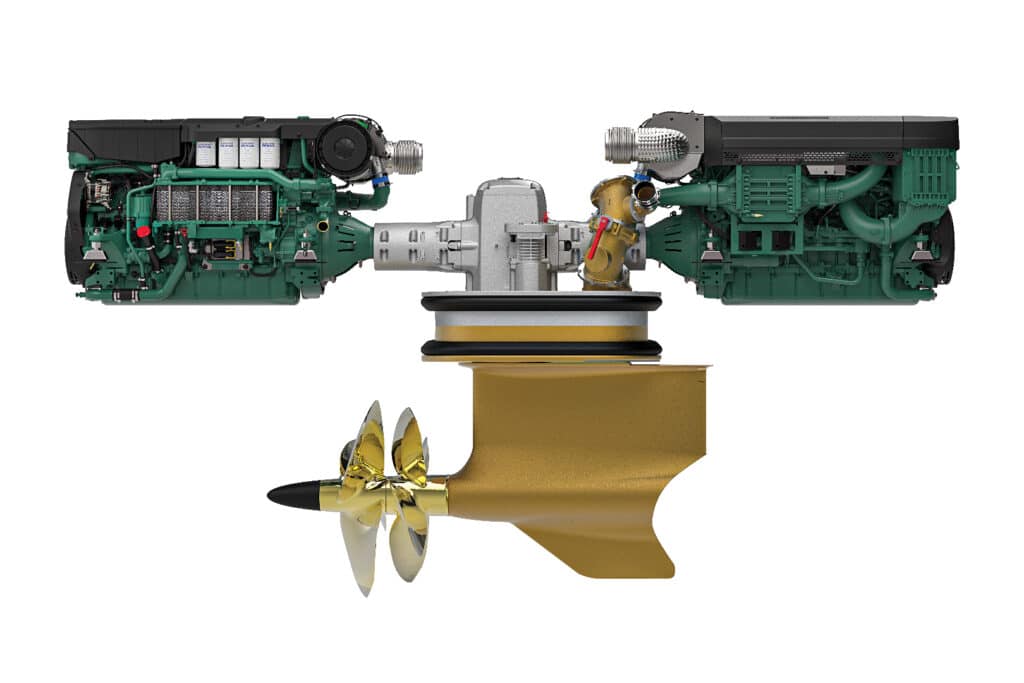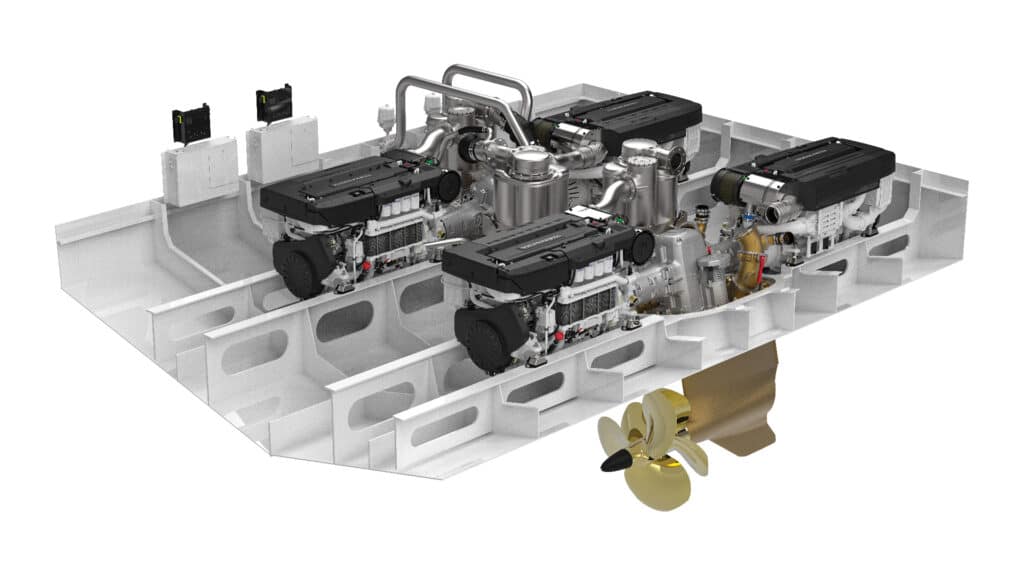
It has been almost two decades since Volvo Penta premiered its IPS pod-drive system in 2005, leading to a revolution in powerboat design and operation. Joystick control became an option. So did larger guest spaces, with the IPS system needing less room. Today, IPS drives are nearly ubiquitous on spec sheets worldwide.
But that’s true only up to a certain size yacht: Just two years ago, when Italy’s Amer launched a new 120 flagship, it was heralded as the largest-ever yacht of its kind with IPS. And while 120 feet of length overall is big, these days, it’s considered a midrange yacht, not a super.
Now comes word from Volvo Penta that 2025 will bring an IPS professional platform for yachts starting at 82 feet and going past 180 feet length overall. The Volvo Penta IPS 40 is designed to produce speeds from 12 to 40 knots on displacement, semiplaning and planing vessels, with all parts of the system integrated, from the helm to the propeller.

In designing the new IPS system, Volvo Penta relied on data and feedback it has collected while delivering a reported 36,000 units of previous IPS systems. The professional platform will also be available for heavy-duty commercial applications, and will come with premium 24/7 customer service and global parts availability.
“Now an entirely new group of owners and marine professionals can benefit from the most fully integrated system on the market that really brings new levels of performance, efficiency and reliability,” says Johan Inden, president of Volvo Penta’s marine business. “We are eager to expand this platform to a whole new class of professional marine segments.”









